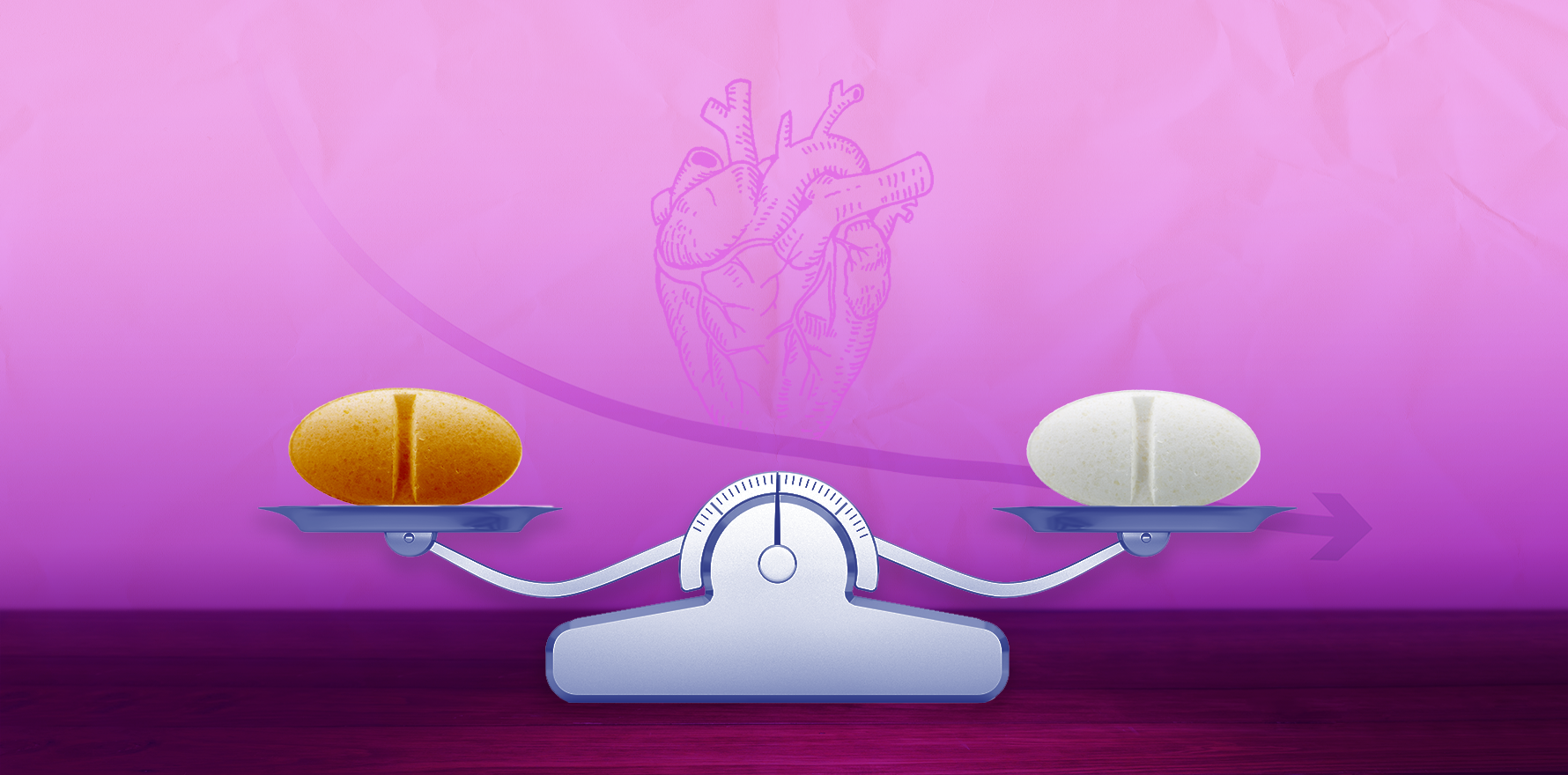It’s a valuable player in the cardiovascular risk improvement game – or will be …
Bempedoic acid performs just as well as statins at reducing cardiovascular risk, according to the latest round of findings published in the Journal of the American College of Cardiology.
“[T]he results of this analysis … reinforce the primary goal of lipid management to achieve optimal LDL-C lowering, rather than focus on the specific class of agents used to do so,” the researchers say.
Reducing low-density lipoprotein cholesterol levels with statins has long been known to proportionally bring down the risk of cardiovascular events, and 2.5 million Australians are now on one of these drugs.
However, around 20% have tolerance problems and 50% of people with high risk of cardiovascular events who are on statins don’t get to an optimal LDL-C level.
Because bempedoic acid is metabolised in the liver, not in peripheral tissue, it has few muscle-related side effects and could be an alternative or adjunct treatment for these people.
Just under 14,000 patients were enrolled in the international trial, which released results in March last year showing that bempedoic acid reduced LDL cholesterol by 20-25%, cardiovascular complications by 13% and coronary revascularisations by 19%, compared to placebo. Importantly, 48% of the trial cohort were women, who are generally over-represented in terms of statin intolerance and under-represented in trials.
All participants had either pre-existing (70%) or were at high risk (30%) for cardiovascular disease, and all were intolerant to statins or to the minimum accepted dose of statins. They were randomised to receive either 180mg of bempedoic acid or a placebo and followed up for 2.25-3.5 years.
This new analysis showed that the cardiovascular benefits were on par with those of statins. With bempedoic acid, the risk of a major vascular event (coronary heart disease death, nonfatal myocardial infarction, stroke, or coronary revascularisation) was reduced by 25% for every 1mmol/L reduction in LDL-C. Statins reduce the risk by 22%.
Related
“The latest analysis makes it really clear that for the overall trial and for those who have previously had a heart attack or stent, the degree of benefit of bempedoic acid was directly related to how much LDL cholesterol was lowered,” Professor Stephen Nicholls, cardiologist and lead of the Victorian Heart Hospital, told The Medical Republic.
“For the primary prevention group, who have yet to have a heart attack or stent, their benefit was even better. We need to understand more about that – more work to do!”
Professor Nicholls led the earlier trial that resulted in the data published last year. At the time, commentary in the NEJM said bempedoic acid had “entered the list of evidence-based alternatives to statins for primary and secondary prevention in patients at high cardiovascular risk. The benefits of bempedoic acid are now clearer, and it is now our responsibility to translate this information into better primary and secondary prevention for more at-risk patients, who will, as a result, benefit from fewer cardiovascular events.”
Bempedoic acid has been approved and available in the US and the European Union since 2020. But there is as yet no timeline for its availability here, Professor Nicholls said.
The company that manufactures bempedoic acid, Esperion, told TMR: “We’ve announced our intentions to file for regulatory approval … in Australia and look forward to providing updates as soon as they are available.”





